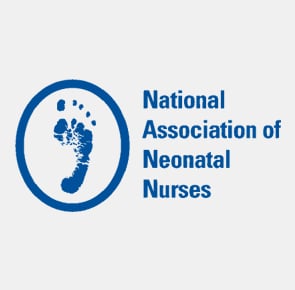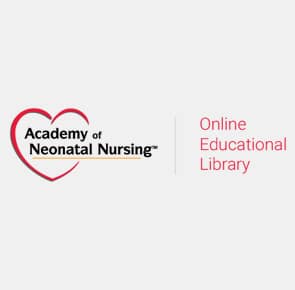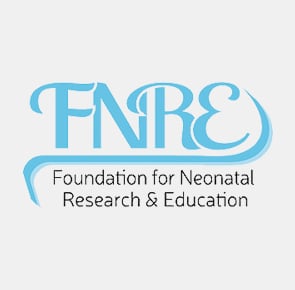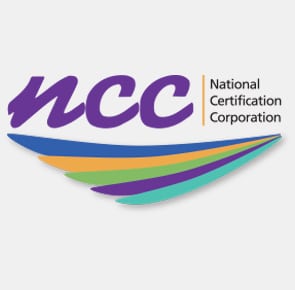Compare Popular Online Nurse Practitioner Programs
What Does Being a Neonatal Nurse Entail?
Neonatal nurses are specially trained nurses that work in pediatric rather than adult care, specifically they work with neonates, or newborn infant patients. These skilled professionals work with infants and their families in cases in which the newborn’s health requires more than usual newborn care. Newborn babies can have health issues that range from mild premature birth symptoms to severe and life-threatening conditions like heart and breathing problems. Neonatal nurses focus their concerns on the critical first four weeks after birth.
'Neonatal' may be defined as the first month of life. However, newborn illnesses can begin before birth and extend well beyond the first month. The field of neonatal medicine covers newborns that show symptoms before and immediately after birth and those with chronic illnesses that result from premature birth. The period of neonatal care can extend for many months after birth.
Neonatal nurses work in hospital settings, clinics, and community-based institutions and organizations. Neonatal care has been essential for millions of babies born with serious health problems. Newborn health conditions cause extreme stress for parents and families and these nurses work with parents and families during some of the most challenging times of their lives. Neonatal nurses work closely with these families to advocate for their interests, provide information, and offer emotional support.
These nursing specialists may work as neonatal nurses within a neonatal intensive care unit (NICU), as a neonatal nurse practitioner (NNP), family nurse practitioner (FNP), or as a registered nurse (RN) acting as a NICU nurse. If you want to become a neonatal nurse practicioner, you can start with an associate degree in nursing or a Bachelor of Science in Nursing (BSN), both of which can be earned through online degree programs or programs with online components, and then move on to earn your Master of Science in Nursing (MSN) on-campus or online and gain at least two years of clinical experience working as full-time staff in neonatal intensive care units or at least working in acute care. Becoming a neonatal nurse is a long-term goal that you aren't likely to regret reaching.

Components of A Successful Career in Neonatal Nursing
The five “C”s of nursing are commitment, care, compassion, competence, courage, and communication. These traits are essential for nursing at all levels, whether you have an associate degree in nursing, are a registered nurse(RN), or have years of experience working in a neonatal intensive care unit (NICU). Neonatal nurse practitioners work in a unique environment that includes vulnerable newborns, new parents, and highly interested family members. NICU nurses must understand the newborn’s physical condition right after delivery and the family’s emotional state. These nurses also educate parents and caregivers and ensure that they understand their roles in the newborn’s care.
The below-listed items describe a variety of components of a successful neonatal nursing career.
- Must have a strong interest in newborns
- Must have strong and confident interpersonal skills
- Nurses must have empathy and demonstrate understanding as a primary caregiver
- Must have an ability to work in a highly technical and automated environment
- Must work well in stressful situations as part of a healthcare team
- Must manage time and resources under sometimes critical conditions
Get Matched With Nurse Practitioner Programs
How to Earn an Online Neonatal Nursing Degree
- Complete high school or a GED equivalent
- Select an accredited school of nursing complete an online Associate or BSN degree
- Pass the NCLEX-RN exam and state license steps to become an RN
- Gain two-years’ experience in neonatal care or an online master’s degree to qualify for certification
Some states permit registered nurse status for applicants with enough experience and an online associate degree. While this is a pathway in some states, employers increasingly prefer and are creating policy that may require an online bachelor’s and Master of Science in Nursing (MSN) degree holders in their Neonatal Intensive Care Units (NICU) and for all those who wish to become a neonatal nurse practitioner, no matter their experiences. However, these requirements do not preclude online learning and there are many options for those who wish to pursue the degree through an online learning platform.
Find Your Online Nurse Practitioner Program
Typical On-Campus and Online Neonatal Nurse Practitioner Entry Requirements

On-campus or online nursing programs can earn you certificates, associate degrees, and BSN degrees. Nursing programs can also be Master’s-level degree programs and doctoral programs for advanced practice and expert status. Hospitals traditionally were a source of training and did not necessarily require a college education. Today, an online associate degree may be the minimum qualification, but an online bachelor’s degree is the preferred level. An in-person or online bachelor’s degree opens a wide range of opportunities, including opportunities for further education at the master’s and doctoral levels.
Typical Neonatal Nursing Certifications Needed
A neonatal nurse must have an RN license and a BSN degree. Some basic certifications include the Neonatal Resuscitation Program (NRP) and Neonatal Intensive Care Nursing. Most states require a period of experience in a supervised setting after you earn your degree, even if you do so online. Another typical requirement is two full years of documented experience in the field of neonatal care.
The National Certification Corporation offers some essential credentials for demonstrating skills and competencies. These include Neonatal Intensive Care, Low Risk Neonatal Nursing, Neonatal Nurse Practitioner, and Women’s Health Care Nurse Practitioner.
Academic Standards
In theory, students can become nurses by a hospital-based training and certification program (as long as it is approved by the National Certification Corporation), an on-campus or online associate degree from a two-year college, or a four-year BSN. States approve nurse preparation programs, and their graduates can qualify for the state license examination. Program accreditation is an essential part of getting the maximum career and educational benefits from nursing education, no matter where you earn your credits. Neonatal training comes after the BSN, although students can develop the basics of neonatal care in nursing school.
Exam and Experience Needed
Neonatal nurses must first become Registered Nurses and be licensed by one or more states to practice. Many states use the National Council Licensure Examination for Registered Nursing or NCLEX-RN. Nursing certifications from the National Certification Corporation can establish competence in a field or sub-field. Certification can add to the neonatal nurse’s portfolio and experience in neonatal intensive care has great weight in career development.
Neonatal Nursing Online Degree Options
Nursing education options include on-campus and online associate, bachelor’s, and master’s degrees (as well as a Doctorate of Nursing Practice (DNP)); nurses wishing to establish expert status can pursue this doctoral degree. States approve schools to train nurses that qualify to sit for the state nursing license exams. The state approval is not accreditation and students should be aware of the difference. The ideal combination is a school with state approval and accreditation by a leading agency.
Online Associate’s Degree
An online associate degree can qualify students to sit for the state licensing exam once they meet other requirements, such as two or more years of nursing experience. An online associate degree can be the shortest and least expensive path to a career in nursing. It can also be a stepping stone to a BSN degree that represents a broader range of job and career potential.
Example Courses for the Online Associate Degree:
- Anatomy
- Nursing Practice
- Chemistry
- Medical Terminology
- Communications
Online Bachelor’s Degree
An on-campus or online bachelor’s degree in nursing is the popular pathway for those who want to become a neonatal nurse practitioner. A BSN qualifies graduates for state licensure and for certifications after meeting the experience requirements. Neonatal nursing students can take specialized electives in nursing school to prepare for a specialization after RN licensure.
Example Courses for the BSN:
- Assessment of Health and Illness
- Anatomy, or Structure of the Human Body
- Health Promotion and Risk Reduction
- Mental Health
- Community Health Nursing
Online Master’s Degree
A neonatal nurse practitioner or a master’s level neonatal nurse must first have a BSN. The nurse practitioner level also requires some years of experience. The MSN is a two- or three-year program at most schools and students can focus on neonatal coursework to develop a specialization in the field.
Example Courses for the online Master’s Degree:
- Components of the Neonatal ICU
- Advanced Neonatal Health Assessment
- Neonatal Physiology
- Advanced Application of Neonatal Medicines and Pharmaceuticals
Online Doctoral Degree
The doctoral level has options within it. The Doctor of Nursing is an ideal degree for a neonatal specialist. The doctor of nursing science is a degree focused on investigation and research. The doctor of nursing philosophy is a traditional Ph.D. and is a pathway to higher education roles in administration and faculty. The Doctor of Nursing Practice is a degree for practicing nurses that seek to attain the expert level.
Example Doctoral study areas include:
- Understanding of the Course of Illness
- Nursing Leadership in Research, Methods, and Practice
- Collaborative skills to create synergy in administration, research, and areas for improvement.
- Capacity to Implement Healthcare Assessment and Change
Careers and Salaries for Neonatal Nurses
The national information shows a definite connection between education and median income. People earn more as they achieve higher levels of education. Work experience is also a factor in neonatal nursing income. Hospitals and clinics value the depth of experience that neonatal nurses gain over years of practice. The highest levels of neonatal intensive car involve severe conditions in which the life of the newborn is at risk. Income increases as nurses move from early to mid-level stages of their careers. The late-stage earnings reflect the reliance upon this group for leadership, mentoring, and expertise.
Find Online Nurse Practitioner Schools
Nursing Salaries by Occupation
The Bureau of Labor Statistics estimated a 22% nurse employment increase in the decade ending 2020. The neonatal field also had a specific driving force for increases in employment. New technology and medical care improvements have increased the birth and survival rates of very ill and premature babies. Neonatal nurses enjoy high entry-level salaries, and their average incomes increase as they gain experience and acquire further specializations.
Experience in the neonatal field translates into higher degrees of intensive care. The highest level of care involves infants in life-threatening conditions due to premature birth, congenital disabilities, malformed essential organs, and diseases. These intensive environments often require neonatal nurses with extensive educational and training backgrounds and experience.
Master’s degree level nurses and neonatal practitioners have the highest earning power among neonatal nurses. These advanced nursing practitioners have broad fields of practice and can legally perform many duties that once were only done by medical doctors. Salaries of nurse practitioners are higher than RN salaries by a substantial degree. Doctoral degrees in neonatal nursing open the possibility of consulting neonatal nursing who can apply their expertise over a wide range of clients and locations. Doctoral level nurses can also earn teaching and faculty positions in research and teaching institutions. Doctoral degree holders can spend their careers in medical research to improve the overall condition of medical care for infants and newborns.
Nursing Occupations:
-
Registered Nurse is a licensed nursing professional authorized under state law to practice in one or more areas of nursing.
-
Certified Nurse Assistant is a nursing professional that works with and under the direction of a registered nurse. Certified nursing assistants provide direct patient care in hospital and clinical settings.
-
Licensed Practical (Vocational) Nurse (LPNs or LVNs) are nursing professionals with a limited scope of practice. They must usually work under the direction of a licensed registered nurse.
-
Neonatal nurse is a specialized registered nurse occupation. The neonatal nurse must first get an RN license and formal education from a state-approved nursing preparation program. Neonatal nurses must gain experience in levels of newborn care.
-
Neonatal Nurse Practitioners can, in many states, perform nearly the same functions as a medical doctor.
-
Nurse Consultant (Neonatal) is an advanced practice nurse such as a neonatal nurse practitioner. The consultant role brings expertise to a wide number of clients or locations.
-
Nurse Educator is an expert with extensive clinical experience and advanced education, nurse educators bridge the gap between theory and practice, equipping aspiring nurses with the knowledge, skills, and competencies necessary for success in their careers.
Important Questions to Ask (FAQ)
How long does it take to earn a Neonatal Nursing Degree online?
Since some states license nurses with an online associate-level degree and the required level of experience, the shortest route to become a neonatal nurse practitioner may be a two-year online associate program. The online Bachelor of Science in Nursing (BSN) program take four years to complete, or less through online education. They must still perform an internship or another type of clinical experience.
How much does an Online Neonatal Nursing Degree cost?
 The costs of a nursing degree can vary by the school and program. The average range for public four-year schools is about $30,000 for out of state tuition and living expenses and about $20,000 per year at in-state rates. The private college average is about $42,000 per year.
The costs of a nursing degree can vary by the school and program. The average range for public four-year schools is about $30,000 for out of state tuition and living expenses and about $20,000 per year at in-state rates. The private college average is about $42,000 per year.
Many students choose to attend a community college for the first and second year of a four-year degree. Community college rates can be much lower than most four-year schools. The national average is in the range of $15,000 per year, and some students can qualify for low-cost in-district rates.
Does the School have the Major You’re Considering?
Nursing schools can offer many pathways to becoming a practicing nurse. These include an online associate degree and/or bachelor’s degree in nursing. Professional nurses will gain access to some areas of nursing through training or experience after licensure as an RN. Neonatal nurse practitioners work in a specialized area of the nursing profession.
Nursing schools may not offer a degree that specializes in working with neonates. The first step in becoming a neonatal nurse is to become a Registered Nurse. Students with a definite interest in in being neonatal intensive care unit (NICU) nurses can select a school that offers elective courses in neonatal study areas. The goal is to prepare for training and certification after the RN license. Neonatal nurses must have certification for Neonatal Resuscitation and Neonatal Intensive Nursing. Certification requires two years of neonatal work experience or about 2,000 hours.
How many students graduate “on time”?
Across the US, and across all majors, time frames are trending toward longer periods of attendance. “On time” graduation can mean 18 months to two full years to complete an online associate-level degree and four years for a BSN. Some recent studies based on the entering class of 2013 showed that about 34% completed their degrees after four years and that the six-year rate was 47%. The NCES data showed that in 2016, the six-year rate was 60% at four-year schools. The public-school rate was 59%, and the private school rate was 66%.
What kind of accreditation should the online program have? How is it regarded in the field?
Accreditation must come from an agency approved by the Department of Education. Two leading national organizations accredit nursing education programs. The Accreditation Commission for Education in Nursing (ACEN) accredits all types of online nursing education programs including master’s, baccalaureate, and associate degrees. The Commission on Collegiate Nursing Education (CCNE) accredits programs that offer only master’s and baccalaureate level nursing degrees. Both of these accreditations have wide acceptance among employers and educational institutions.
Software, Technology and Skills Needed
Nursing practice involves direct patient care and supervision of LPNs and nurse assistants. They must work well in fast-paced teamwork and collaboration-oriented environments. They must have exceptional time management skills and the ability to manage many overlapping activities at the same time. Nursing today involves the use of computer-based, high-tech devices and machines.
Nurses must record inputs, treatment notes, and other medical information into computerized records systems. They must be comfortable with Office suites and similar general software systems. They must also master hospital or facility software systems. Many procedures integrate human efforts with machine-controlled systems.
Neonatal Nurses Scholarships
Scholarships and grants are important parts of nursing education. The costs of nursing education can exceed an individual’s or family’s ability to pay. Scholarships can supplement any gap and reduce the need to borrow and build up a debt burden after graduation.
-
Dr. Margaret Freda Graduate Nursing Scholarship
Amount: $4,000 (Several Awards)
Deadline: Varies (Previously January 19)Application period runs from September through the following January.
March of Dimes Graduate Nursing Scholarships provide several $4,000 awards to registered nurses that enroll in graduate programs focused on maternal-child nursing. The program honors the memory and contributions of the late Dr. Margaret Comerford Freda who developed interdisciplinary collaborations to save children including clinicians, researchers, and the March of Dimes organization. The scholarship award goes to the highest-ranking nursing applicants.Search Programs Offering Nurse Practitioner Majors
-
The Academy of Neonatal Nursing Ingrid Josefin Ridky Academic Scholarship
Amount: $1,000
Deadline: July 1This scholarship supports members of the Academy of Neonatal Nursing seeking undergraduate or graduate degrees. Eligible applicants will participate in an undergraduate or graduate degree program with a focus in neonatal nursing or a related nursing major. Applicants must be members in good standing of the Academy and have a minimum of two years of neonatal practice. The eligible majors are Bachelor of Nursing, Master of Nursing, Doctoral Degree in Nursing, or Post-Master’s Certificate in a Nursing Specialty. The program requires students to complete at least two courses prior to the application and have a GPA of 3.0 or higher on a four-point scale.
-
American Nurses Foundation Grant
Amount: Up to $7,500
Deadline: May 1Sigma Theta Tau Honor society sponsors this award. The recipient must be a registered nurse with a current license. Applicants must be enrolled in an online master’s or doctoral program. The award will support a clinical research proposal. The committee will rate applicants based on the strengths of their proposals and seek to select a proposal that offers significant contributions to nursing knowledge and education.
-
Foundation for Neonatal Research Scholarship
Amount: Varies
Deadline: VariesEligible nurses or students must be admitted to a college or school of higher education for online Bachelor of Science in Nursing, Master of Science in Nursing for Advanced Practice in Neonatal Nursing, or a Doctoral degree in Nursing. The scholarship is merit-based.
Professional Neonatal Nursing Organizations
- NANN
- ANN
- AWHONN
- FNRE
- NCC

NANN
National Association of Neonatal Nurses
The National Association of Neonatal Nurses is the advocacy organization for neonatal nurses throughout the country. Nurses can take advantage of opportunities for networking and continuing education resources. NAAN offers expertise and insightful training and education programs. The association also offers leadership opportunities and research. These programs help with professional enrichment as well as continuing education requirements. Students can benefit from insider knowledge of the profession, trends, and valuable career information. The organization advocates for policies at the national government level as well as in state governments.

ANN
The Academy of Neonatal Nursing
The Academy provides high-quality healthcare education across a range of nursing and neonatal specializations.

AWHONN
Association of Women’s Health, Obstetric and Neonatal Nurses
The association is an education and advocacy organization dedicated to improving the neonatal nursing profession and providing educational resources. AWHONN does not offer certifications but the organization does offer continuing education courses with completion certificates to satisfy continuing education requirements. The association’s education resources include courses in fetal heart monitoring and critical care obstetrics.

FNRE
Foundation for Neonatal Research and Education
The foundation is a research and advocacy organization dedicated to strengthening of Neonatal Nursing Practice. They promote research, evaluation of Neonatal Nursing Interventions, and working toward improved patient outcomes. They use scholarships and advocacy to prepare Neonatal Nurses for the present and future needs of the society.

NCC
National Certification Corporation
The corporation provides certification for neonatal intensive care nursing, including developing and administering the RNC Certification for Neonatal Intensive Care Nursing (RNC-NIC). Eligible candidates must be Registered Nurses, with 24 months of neonatal care experience that consists of 2,000 hours or more.
Choosing an Accredited Online College
University HQ recommends that students select and attend accredited schools of nursing. Students must be certain that the school has accreditation from a Department of Education approved agency. Accreditation affects that value and usefulness of your nursing degree and ensures wide acceptance of your academic achievements by employers, the medical community, and other educational institutions. Accreditation matters during and after college education. During undergraduate or grad study, the Department of Education financial assistance programs may only go to accredited schools.
The Commission on Collegiate Nursing Education and the Accreditation Commission for Education in Nursing (ACEN) are the leading accreditation agencies for nursing programs.
Online vs. On-Campus vs. Hybrid
Nursing students can attend traditional on-campus courses and learn in classroom settings with other students. They can learn at home through online or distance learning. Some students prefer to combine the campus and online studies into a mix or hybrid that uses both types of learning. There are advantages to each type of learning environment.
Today’s student can use the internet to attend college anywhere in the US without leaving home, job, business, or other obligations. An online nursing education must include hands-on supervised training at a location in or near the student’s home area.
Frequently Asked Questions
What do I need to become a neonatal nurse?
You can become a neonatal nurse with either an associate or a bachelor’s degree, but the most important things you need are experience and licensure. You can gain this by passing the Neonatal Intensive Care Nursing exam, so your focus when you are considering various programs should be on making sure the program will prepare you to take this exam. If you cannot find anyone from a prospective program who can tell you that their degree will prepare you for this exam, you might want to look elsewhere for your education.
What should you expect if you work in neonatal nursing?
In this field, you will consistently be working with critically ill patients. This isn’t like pediatric care, where patients are expected to come in for well visits to keep an eye on development. If an infant is in the neonatal ward, it’s because they are in danger and need around-the-clock care. You may work in nurseries with acutely ill or chronically ill patients, but all of them will be dealing with severe issues such as birth defects, surgical issues, medical conditions, infections, and more.
Is my only option to work in the NICU?
While most neonatal nurses work in hospitals or clinics, some follow up with patients after they have returned home. They may visit to check on the infant’s progress, or they may provide ongoing, in-home care for those children who have chronic illnesses and continue to require professional care.
Does the College Have Post Graduate Job Placement Help & Assistance?
The school or college of attendance is in an ideal position to know the student’s strengths and help with job placement, internships, and career development. Students should carefully examine the resources committed and types of job placement services available. Ideally, the school should have a multi-layered program for career counseling, preparation for interviews, and outreach to the business community and other employers. Typical examples of good programs include frequent job fairs or other hiring events, resume help, and attention to the student throughout their student career and not just at the last semester.
When two institutions rate closely in the student’s assessment, they can assign extra weight to schools with vigorous career counseling and job placement programs. The career counseling and preparation for interviews is an important part of a well-rounded education. While many students may plan to go further in school or start their own business, maximizing opportunities for employment and high salary is an important benefit for students.
Why Do You Need to Consider How Ratings/Accreditation Can Affect Your Salary?
Institutional ratings reflect educational factors that concern employers when selecting applicants. Ratings include the retention rate, the graduation rate, and the level of salaries achieved by recent graduates. Employers want to see that the school has selected strong students and has a high retention rate. They also want to see that a high rate of students graduated on time or nearly so. Finally, employers wish to know that recent grads have gotten high paying jobs after graduation. When employers see excellent numbers in these categories, they can be assured that students are ready to meet their expectations in the workplace. High ratings can generate demand and high salaries.
Accreditation affects the availability of student financial aid and the level of acceptance of college credits at other educational institutions. Accreditation assures the student that they will receive high-quality education based on standards applied to a multi-state region of colleges and universities and affects the value of the degree in educational and career options.
Search All Programs
